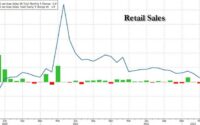Global primary energy demand jumped by 5.8 percent last year and exceeded the pre-pandemic levels of 2019 by 1.3 percent, BP said in its annual Statistical Review of World Energy 2022 on Tuesday.
Primary energy in 2021 grew by its largest amount in history, with emerging economies accounting for most of the increase, according to BP’s closely-watched energy review.
Primary energy grew by 31 EJ in 2021, the largest increase in history and more than reversing the sharp decline in energy consumption seen in 2020. Primary energy demand in 2021 exceeded the 2019 pre-COVID levels by 8 EJ. The increase in primary energy in 2021 was driven by emerging economies, especially China, BP said, as COVID-related mobility restrictions were eased and industries bounced back last year.
While emerging economies boosted primary energy consumption last year, primary energy demand in developed economies was still below 2019 levels last year, BP said.
The rise in primary energy between 2019 and 2021 was entirely driven by renewable energy sources. The level of fossil fuel energy consumption globally remained unchanged between 2019 and 2021, with lower oil demand offset by higher natural gas and coal consumption, according to BP.
The jump in energy demand and rebounding global economic growth also led to a surge in carbon dioxide emissions last year compared to 2020. Emissions from energy rebounded strongly in 2021 back to around 2019 levels, BP said.
“In many ways, this sharp rebound in energy demand is a sign of global success, driven by a rapid recovery in economic activity as the widespread distribution of effective vaccines allowed for an easing in Covid restrictions in many parts of the world and a return to our everyday lives,” BP’s chief economist Spencer Dale said.
“But it also highlights that the pronounced dip in carbon emissions in 2020 was only temporary: carbon equivalent emissions from energy (including methane), industrial processes, and flaring increased by 5.7% last year.”
By Tsvetana Paraskova for Oilprice.com
More Top Reads From Oilprice.com:




